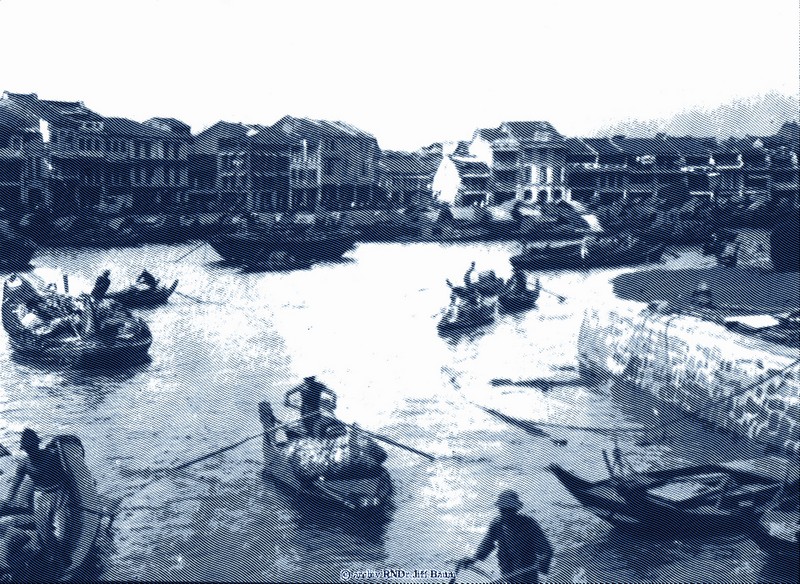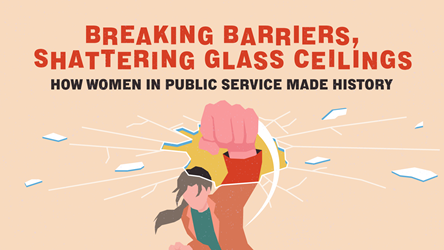Chronicling 50 Golden Years
A new book on the history of the Public Service offers a fascinating and humbling insight into the lives of public officers, and their love for their work.

Senior journalist Chua Mui Hoong has had her fair share of excitement in her 19-year career, covering politics and public policy in Singapore. But even for this Straits Times veteran, writing a book on the history of the country’s Public Service has been an eye-opener.
“Many of us have the impression that public service jobs are boring, nine-to-five and deskbound… This is a myth, as there is actually a whole range of interesting careers,” Ms Chua tells Challenge.
Take, for instance, government chemist Bosco Chen Bloodworth. Now a senior scientific advisor at the Health Sciences Authority, Professor Bloodworth’s responsibilities over the past 30 years have included monitoring the food and drugs that arrive in Singapore.
His expertise has also been tapped to solve crimes. In 1988, a spate of robberies in Bukit Timah shocked Singapore. Burglars used the same modus operandi – stunning the guard dogs by feeding them poisoned beef steaks.
Professor Bloodworth and his team were called upon. They identified the poison used, thus helping the police to solve the case.

Sense Of Pride
Entitled “Pioneers Once More”, the book, published by the Public Service Division (PSD) and Straits Times Press, recounts the history and evolution of Singapore’s Public Service from 1959 to 2009. It tells Singaporeans how their public officers have served the country with passion and commitment.
“We hope this book will help articulate the sense of pride of belonging to the Singapore Public Service,” PSD’s Permanent Secretary, Ms Lim Soo Hoon, says.
For Mr James Low, who co-ordinated the research for the book, the most “fascinating” part of the project was finding out more about his fellow officers.
“An outstanding example is the Istana gardener Hamid Sudi, who takes so much pride in seemingly trivial grass – he cuts them down to precisely 10 millimetres day in and out for more than 30 years,” the researcher at the Civil Service College (CSC) notes.
Such duties “may appear trivial and inconsequential in the broader development of the nation, but it is these everyday people whose attention to detail through the years that actually make up the Public Service, serving the public,” he says.
Ms Joanne Yip, a part-time assistant archivist at the National Archives of Singapore, was also involved in the research. She describes the experience as “enlightening”.
“I really had to take a closer look at the history of the Public Service and learn more about the people behind policies that invariably influence my life as a Singapore citizen,” she says.
Notes From The Top
But perhaps what was most insightful was the candid sharing by senior public officers. “Many of us have the impression that the job of a Permanent Secretary is that of a paper pusher, vetting papers and making policies,” says Ms Chua.
“What we don’t get to see is the wealth of experience that some of these senior officers have: the operational crises they had to manage, the stresses they went through, which tested them in different ways.”
She cites the example of Head of Civil Service, Peter Ho. As a young commanding officer in the 1970s, one of his tasks was to stop Vietnamese boat people from landing in Singapore. But he faced a “real dilemma” as many of these refugees had suffered immensely while at sea.
“There were hard decisions to make,” Mr Ho reveals in an interview with Challenge. “It was especially tough on the young National Servicemen who were affected by the plight of these boat people. So eventually I had a group of the older, more mature guys just to deal with the refugees.”
“All these encounters took place out of sight from the ordinary Singaporean,” he adds.
“Today, most people won’t know what my generation went through in the 70s. What we now take for granted is not assured. The experience of Vietnamese boat people showed how uncertain life can be.”
PSD’s Director of Communications and International Relations, Ms Toh Su Fen, says they chose Ms Chua to write the book as she has the ability to “make the narrative compelling without sacrificing on the seriousness of the subject”.
Ms Chua, who is also the author of “A Defining Moment: How Singapore Beat Sars”, spent one and a half years on “Pioneers Once More” while juggling her commitments as a writer for The Straits Times. She was assisted by a PSD and CSC team and former Straits Times journalist, Ken Kwek, who helped conduct interviews.

Evolved With The Country
The Public Service is a massive outfit, with some 120,000 officers working in 15 ministries and more than 50 statutory boards.
Ms Chua says: “The challenge for me was to take a step back to see how the Public Service has evolved with the country.”
After talking to senior public officers, she came up with a thematic approach to tell the story of the Public Service in each decade.
In the 1960s, the need for economic and political survival forced the Public Service to be enterprising and street-smart. By the industrialising 1970s, there was a need for a more systematic way of doing things. The boom-and-bust years of the 1980s were a watershed for the Public Service, sparking a soul-searching that helped it modernise quickly.
The drive towards greater public excellence prevailed in the 1990s. In the 2000s, globalisation and a more uncertain environment led the Public Service to learn new skills of managing risks and preparing for the unexpected.
All in all, it was an educational and enjoyable experience for those involved in the book.
Ms Stella Kao, a PSD Communications and International Relations manager who managed the project, says: “Like the title of the book, I felt like a pioneer in this project... And although I have been in the Public Service for almost 20 years, I realised I didn’t know much about its history.”
“Pioneers Once More” will be launched during this year’s Public Service Week at the Excellence in Public Service Awards Ceremony on May 21. The book will be available for sale at major bookstores. Public officers can place their orders through their agencies.

Archival pictures on pages 6 and 7: Pioneers Once More: The Singapore Public Service 1959-2009 © Singapore Press Holdings Limited. Reproduced with permission.
- POSTED ON
May 12, 2010
- TEXT BY
Clare Tan









